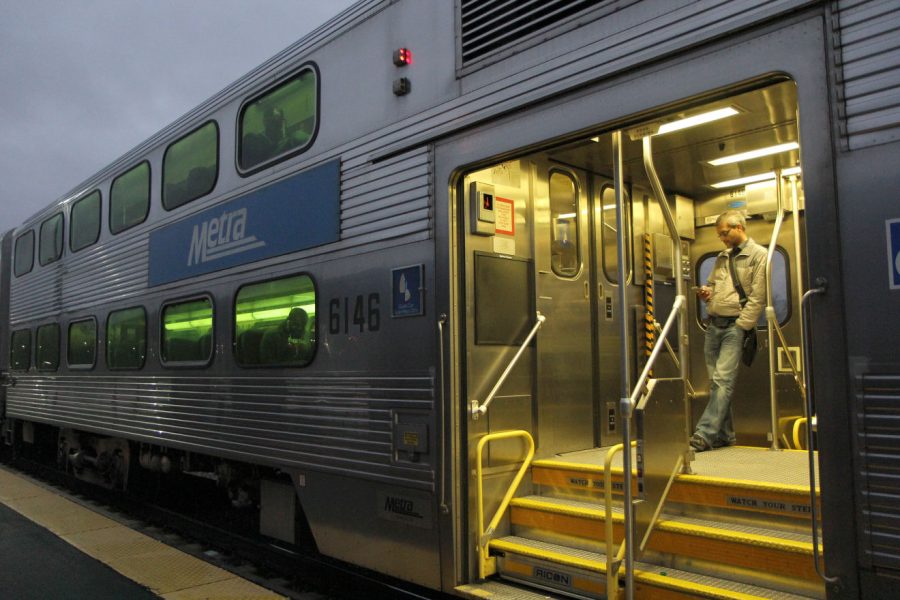Students facing higher costs for travel to city
October 16, 2014
Students may see a $1 increase in the Elburn train’s one-way ticket price come February if the Metra board approves a fare hike at its meeting Nov. 14.
If the hike is approved, one-way tickets will increase from $7.25 to $8.25, 10-ride passes will increase from $72.50 to $74.25 and monthly passes will increase from $206.50 to $235.25, said Metra spokesperson Meg Reile. The Elburn train station is widely used by students to go to and from Chicago on the weekends.
The ticket price increase would go into effect Feb. 1 if approved.
Metra’s “goal with this fare increase is to better capture the actual cost of doing business,” Reile said. “… Our fares have not kept pace with the consumer price index. We’re far below it.”
Effect on students
NIU’s shuttles transport students, faculty and the public to and from Elburn station. The shuttles make trips from the afternoon to evening Fridays and Sundays. Shuttles leave and arrive at the student center. Tickets are $6.25 for students, $8.50 for faculty and $10.50 for the public.
The fare increase really isn’t a concern because the shuttle’s use by students remains consistent, said Brett Williams, Student Association director of Mass Transit.
“… I don’t think [the price increase is] going to impact the greater number of students that want to head back on the weekend, especially for the holidays,” Williams said.
Freshman marketing major Adam Vasquez, who bought a shuttle ticket for the first time Wednesday, said going home isn’t a regular thing for him.
“I don’t really mind the dollar … [but for people who go home often] a dollar can really add up,” Vasquez said.
Amber Banks, sophomore hospitality management major and employee of the Student Box Office where shuttle tickets are sold, said she thinks the fare hike could affect students.
“I have noticed that students have been getting rides to and from because they have friends that have cars,” Banks said. “But I do know it can affect some people because no one wants to pay more than $7.25.”
Williams said he thinks students have enough to do at NIU to occupy them over the weekend and they don’t need to spend the extra money to go home.
“I feel like students rely on going home too often,” Williams said. “… The shuttles are usually full.”
Metra projects
Reile said Metra’s proposed ticket price increase is part of a 10-year, $2.4 billion modernization program. She said part of the funds raised by the fare increase will go toward financing costs of $400 million in bonds to help update Metra’s system.
“… [Metra] is focusing are on a federally mandated safety system called Positive Train Control,” Reile said. “… It’s an extremely complicated system using GPS and other motoring devices that will provide the engineer with real-time information about trap conditions, things going on, on the railroad on a daily basis … .”
The cost of tickets goes to the operation of the train: fuel, crews and daily maintenance.
Capital, funded through federal fixed guideway and federal formula funds, goes towards anything that isn’t daily maintenance, such as replacement of tracks and cars and the rehabilitation of cars, said Reile.
“We have to replace these assets,” Reile said. “Safety is [Metra’s] utmost priority … but you can only rehabilitate [railcars] so many times before it’s outside of what’s considered its useful life, and many of these cars are already at that point.”
Reile said the average age for Metra’s railcars is 30 years, while Metra’s peers across the country have cars that are, on average, 19 years old. Metra operates the lowest ratio of spare cars of any commuter railroad in the United States, said Reile.
Metra is also looking at rehabbing and replacing a number of its locomotives, Reile said.














